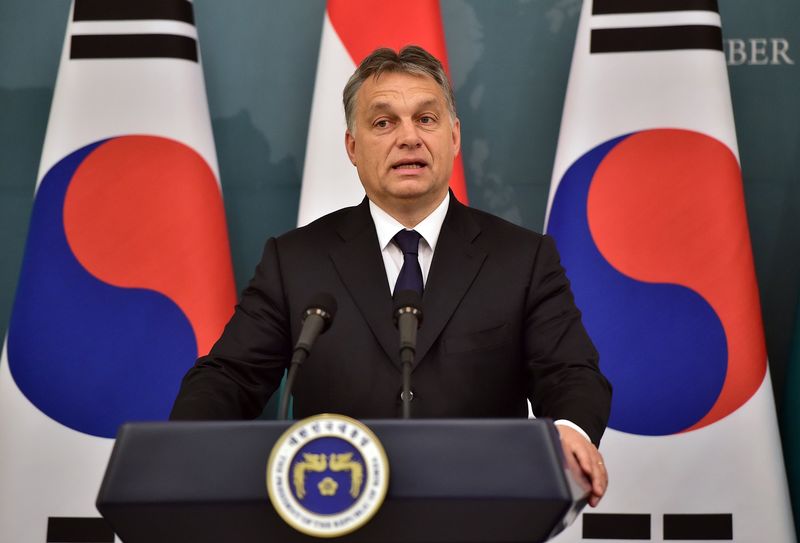BUDAPEST (Reuters) - Hungary's most important goal in foreign policy next year is to strengthen its alliance with Germany, a minister told the weekly Figyelo on Thursday ahead of an expected visit by Chancellor Angela Merkel.
Janos Lazar, the minister in charge of Prime Minister Viktor Orban's office, said the conflict between Ukraine and Russia could easily escalate further into a war which could pose a threat to ethnic Hungarians living in Ukraine.
"For the Hungarian government the most important is to guarantee their security and future," Lazar was quoted as telling the newspaper.
He said Hungary's stance was that peace talks, not only economic sanctions, were needed to defuse the conflict, and it was Germany that could resolve the situation.
"From the aspect of Hungary, the most important world leader today is Angela Merkel," Lazar said. "For 2015, our most important foreign policy goal is to strengthen our alliance with Germany."
His comments could reflect an attempt to court its main ally within Europe after a period of seeming to move closer to Russia, now facing its own economic turmoil, to secure trade and investment.
Earlier this year, Orban called for ethnic Hungarians in neighbouring Ukraine to be granted autonomy. His comments prompted Kiev to summon the Hungarian ambassador for an explanation and drew criticism from regional heavyweight Poland.
German media has reported Merkel is due in Budapest in February, but Lazar did not give a date.
In the five years since he was elected prime minister, Orban has courted controversy with Brussels and Washington and has irked some German interests by imposing big taxes on telecoms firms, including Magyar Telekom, and broadcaster RTL, which belongs to the Bertelsmann group.
Striking a conciliatory tone, Lazar said the disputes with these companies should be settled via negotiations.
Lazar also said Hungary would issue an international tender soon to hire foreign managers to work in the management of its existing Paks nuclear plant, to work out an operation model that could be competitive for the long term.
He said this would be useful for the planned expansion of the nuclear plant, which Russia's state atomic energy corporation Rosatom will build.
Orban has been criticised for a lack of transparency in granting the deal to Russia without a tender, a move which has been seen as part of his drift into the Kremlin's orbit.

"The implementation of the Paks 2 project will be probably carried out as part of an international consortium in the end. I hope the Russians will grant deals to Western European suppliers as well ..." He did not name any potential suppliers.
(Reporting by Krisztina Than; Editing by Alison Williams)